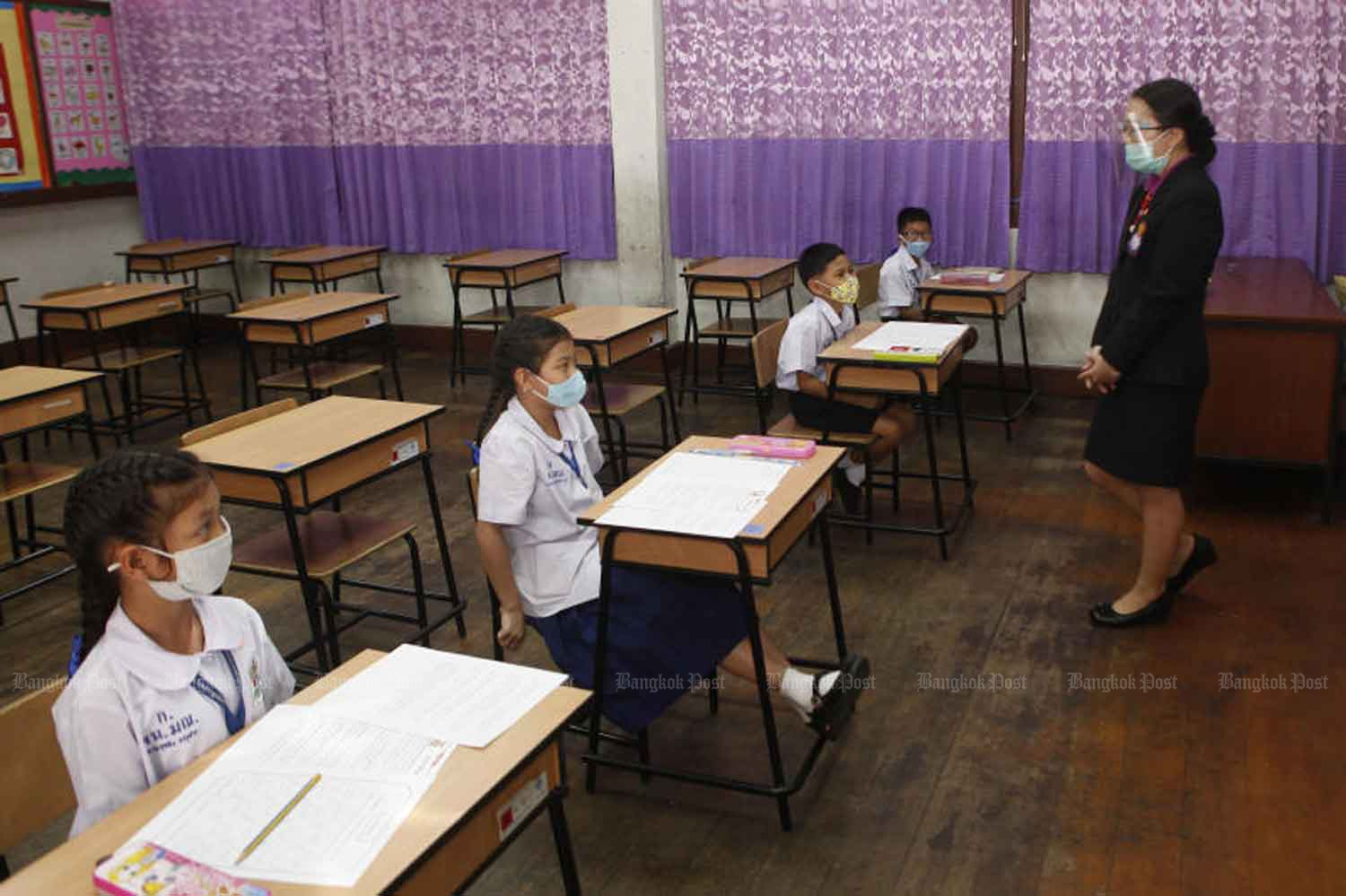
Almost 700,000 young people have been left out of the education system, mainly due to poverty, according to the National Economic and Social Development Council (NESDC).
Although the number of school dropouts has improved, almost 670,000 young people have no access to education and the number is rising, said NESDC secretary-general Thosaporn Sirisumphand, citing a report by the council.
Of the students who entered Prathom 1 (grade 1) nationwide between 2003 and 2005, for example, more than 20% failed to go on to complete primary school education.
Poverty is mainly to blame for young people's failure to continue their education, said the Equitable Education Fund. Other factors include family problems, teen pregnancies, illnesses, the need for youngsters to care for sick family members and parents' frequent labour migration.
The report also highlights the widening discrepancies between families of different financial status. In the top 10% of families, 80% of their children completed high school or vocational college and 63% of them graduated from universities.
The numbers are starkly different with the bottom 10% of the poorest families. In this group, only 40% of children finished high school or vocational college, while just 4% managed to obtain a bachelor's degree.
Mr Thosaporn said being cut out of the education system early deprives young people of their "human capital" potential, which increases in proportion to their higher educational background and acquired job skills. By contrast, the fewer skills they acquire, the lower their wages, which strips them of financial security and perpetuates the cycle of poverty.
In the long run, those with limited education find it hard to become skilled workers and are unable to keep up with the constantly changing demands on the workforce. This can have far-reaching repercussions on the country's productivity and economic opportunities, he said.
One way to solve the issue is to streamline the education system to make it more flexible for young people to learn outside of the classroom in their own time so they can design their studies around their living conditions, said Mr Thosaporn.
